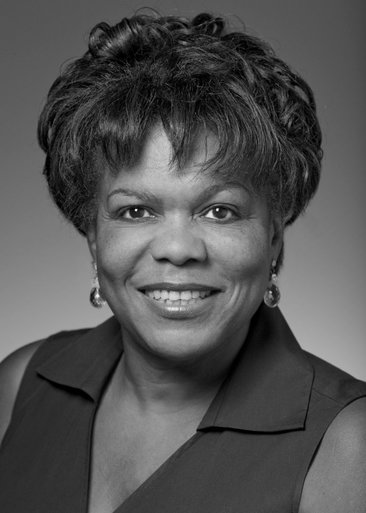As the President of Legal Momentum and an African American woman who has experienced economic insecurity first hand, Black Women’s Equal Pay Day provides a critical moment to reflect on how pay inequity impacts women who face intersectional forms of discrimination.
"It's here!" This is what my siblings and I would say each year when the federal income tax return check arrived in the mail. This check represented the one opportunity each year that my two sisters and brother and I could go to the grocery store with our mother, a factory seamstress, and choose our own treat. After turning 50, my mother got her GED—for herself, but also as a way to get a higher paying job after her factory was closed.
Even in the most progressive cities in our nation, the compounding impacts of gender and racial discrimination continue to hold Black women back. Despite making overall advances in closing the gender wage gap, New York State has failed its women of color. Black women earn a mere 63 cents for every dollar earned by a white non-Hispanic man, and the wage gap is largest for Black women with college and advanced degrees. Shamefully, even in an economic powerhouse such as New York City, the wage gap is even wider for Black women, who earn only 57 cents to the dollar. COVID-19 has only exacerbated these inequities, disproportionately pushing Black and Brown women into unemployment or onto the frontlines without adequate compensation. Our society must do better.
We say it time and time again—whether overt or implicit, gender and racial discrimination drive the wage gap. Research demonstrates that 35% of the gap can be attributed to discrimination. A 2015 study concluded that women are three times more likely than men to be passed over for assignments, promotions, or wage increases, and a 2018 survey showed that Black women are less likely to be promoted or recieve support from managers than their male counterparts. Not only are women pushed into lower paying work, research has also shown that when women enter into male-dominated fields, it lowers wages in that field. Our society must do better.
On this Black Women’s Equal Pay Day, here are four concrete demands to make to your federal, state, and local representatives:
- Enact a Living Wage! The federal minimum wage has stagnated at a shameful $7.25/hour, which is not enough for anyone to securely live in any part of our country. To make meaningful progress on pay equity, we must lift women out of poverty and low-wage work. It is time we increase federal, state, and local minimum wage rates; regularly adjust those rates to account for local cost of living; and eliminate the tipped minimum wage.
- Push Pay Transparency! The answer is simple: pay inequity will continue as long as employers can conceal their pay rates. To drive fair pay practices, employers must collect and report pay data based on gender and race and must meaningfully address any disparities they find. Moreover, employers should be required to disclose salaries (or salary ranges) as a part of job postings.
- Eliminate Discriminatory Practices Like Reliance on Salary History! Women, particularly women of color, have historically been paid less than men. Employers’ practices of relying on an employee’s previous salary to set her new salary, therefore, perpetuates and further embeds discriminatory pay practices, setting women workers on a trajectory of depressed pay throughout their careers. Many states have led the way in passing “Salary History Ban” legislation, which prohibits employers from inquiring about a person’s prior salary in determining compensation. This must become the norm.
- Increase Women’s Access to Higher Paying Jobs! We must be proactive about moving women into higher paying occupations. This requires substantial investment in outreach and training programs to place women in high-demand occupations where salaries are higher. Meanwhile, we also need to push to increase salaries in occupations where women already work, including in nursing, caregiving, and early childhood education.
Building on our 50 years of experience fighting against pay inequity, Legal Momentum continues to push litigation, legislative reforms, and educational initiatives to ensure that women receive a living wage, equal pay, and the ability to pursue their livelihoods free from discrimination. The gender wage gap is a multifaceted problem rooted in systemic forms of gender and racial discrimination, and requires a multifaceted approach that addresses root causes.

Carol Baldwin Moody
President and CEO of Legal Momentum
Praised by national women leaders. The SYMS | Legal Momentum Helpline remains available at NO COST to provide legal information and referrals on issues related to sex discrimination in the workplace, home, school and the courts.
REACH us LMHelpline.org
EMAIL us help@LMHelpline.org
CALL us (971) 3 LEGAL 1 (971) 353-4251
Be part of the solution. Please share. In this challenging time, our legal team developed a no-cost guide to Legal Rights and Economic Resources for Workers Impacted by COVID-19, also available in Spanish and Chinese.
Protecting women’s and girls’ rights begins with the law. Thank you for your ongoing support - you make our work possible! Stay safe and stay healthy.

